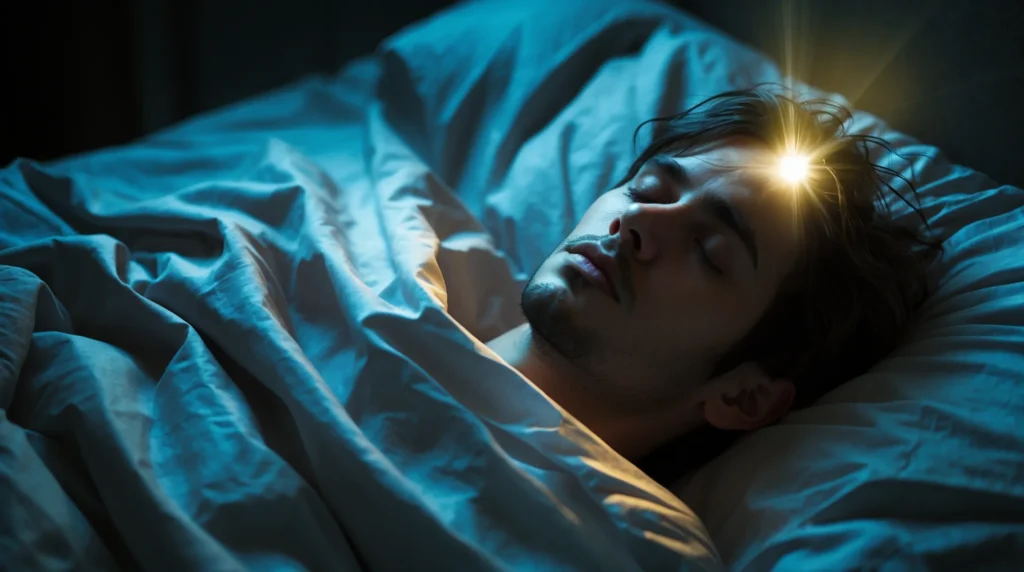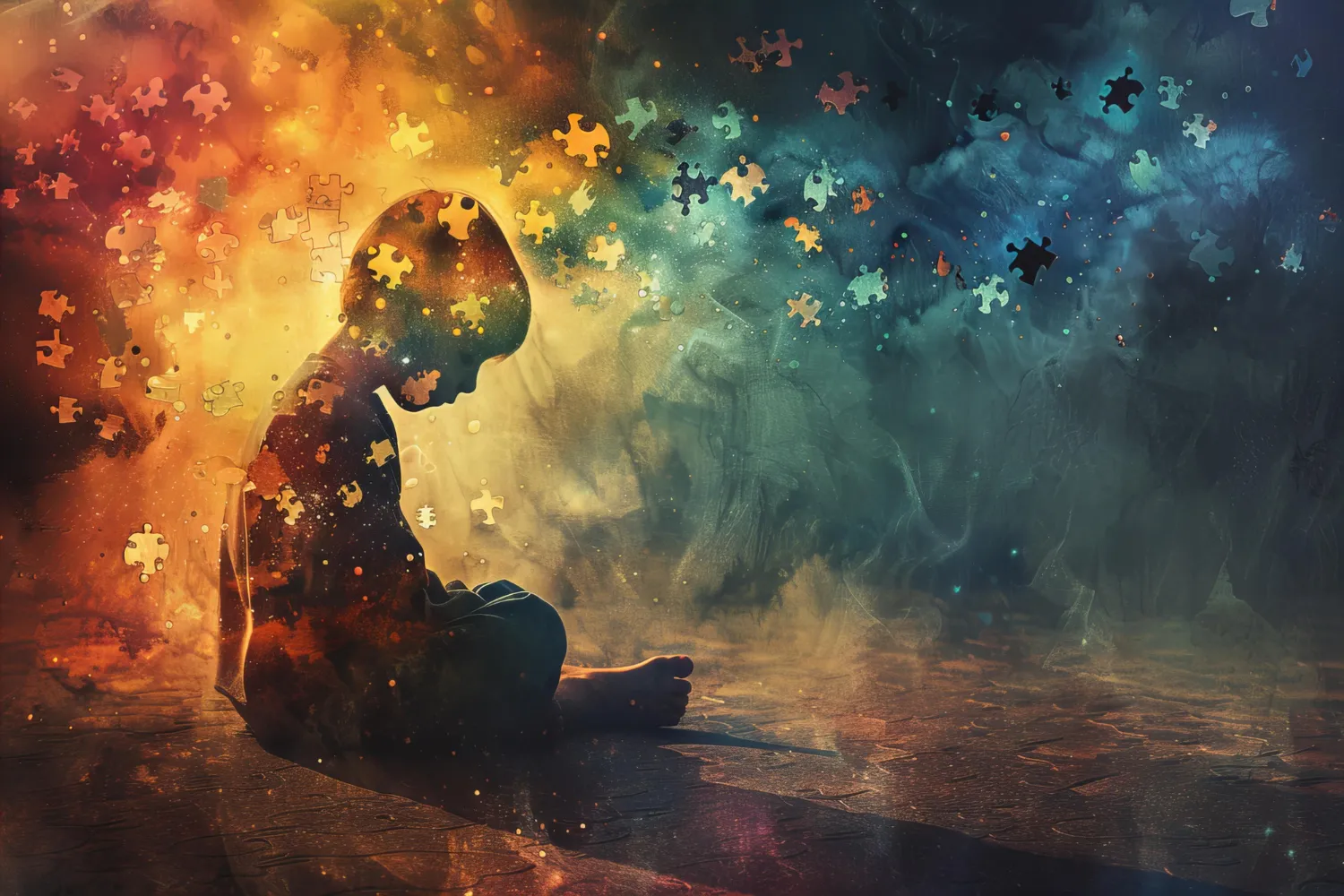“Sleep is the golden chain that ties health and our bodies together.” – Thomas Dekker
Introduction
Have you ever woken up in the morning and asked yourself, “Why don‘t I dream anymore?” You’re not alone. Millions of people across the U.S. experience dreamless sleep, leaving them puzzled and even concerned. People seek reasons for not dreaming at night. According to the American Academy of Sleep Medicine, REM sleep isn’t where most dreaming occurs; it typically makes up about 20-25% of total sleep time. If you’re not remembering any dreams, you might wonder if you’re even entering this vital stage.
In this article, we’ll explore the 7 surprising reasons for not dreaming at night, combining insights from sleep science, psychology, and lifestyle factors. Our goal is to demystify why you might be experiencing this and what can be done about it.
Key Takeaway: Most of us do dream, but we don’t always remember them. The reasons behind that can be more common and correctable than we think.
What Is Dreaming and Why Does It Matter?
Dreams are sequences of images, thoughts, and emotions that occur during sleep, especially in the REM (Rapid Eye Movement) phase. They’re not just random brain activity instead, they play a role in emotional processing, memory consolidation, and stress regulation.
We often associate dreaming with vivid storytelling at night, but if you’re experiencing no dreams at night, it doesn’t necessarily mean your brain isn’t active. Instead, it may mean you’re simply not recalling them.
Related: Black Snake in the Dream – 8 Interpretations That May Be A Warning For You
Sleep Stages and Dream Likelihood
| Sleep Stage | Description | Dreaming Likelihood |
|---|---|---|
| NREM Stage 1 | Light sleep | Very low |
| NREM Stage 2 | Onset of sleep | Low |
| NREM Stage 3 | Deep sleep | Moderate |
| REM Sleep | Active dreaming | Very high |
Related: 7 Dream Interpreter AI: Unlocking the Secrets of Your Dreams with Technology
7 Surprising Reasons for Not Dreaming at Night
1. You Are Dreaming But Forgetting Them
Let’s start with the most common reason: we do dream, but we fail to recall them. Our ability to remember dreams is tied to how and when we wake up.
- Waking during or right after REM makes it easier to remember.
- Alarms can disrupt recall.
- Lack of mental focus upon waking leads to memory loss.

Tip: Keep a dream journal near your bed. Writing within minutes of waking boosts dream memory.
“We remember dreams the same way we remember anything like attention, emotion, and repetition that matter.”
Related: Mastering A-Z of Dream Journaling in 10 Minutes to Unlock Your Inner Strength
2. Poor Sleep Quality or Disrupted Sleep Cycles
One of the primary reasons for not dreaming at night is inconsistent or poor-quality sleep. If we aren’t cycling naturally through all sleep stages, especially REM, dreams won’t occur or get disrupted.
- Sleep apnea, insomnia, and restless leg syndrome can reduce REM time
- Nighttime interruptions reset the sleep cycle prematurely
How this affects dreaming: Shortened or skipped REM stages mean fewer dreams.
Related: Causes of Nightmares: Why We Have Bad Dreams and What They Reveal in 5 Minutes
3. High Stress or Chronic Anxiety
We might think stress would trigger more dreams, but chronic stress often blocks deep sleep, leading to dreaming problems.
- High cortisol levels delay REM onset
- Anxiety creates fragmented sleep
Clinical Insight: Those under long-term stress often experience dreamless sleep or dreams they can’t remember due to interrupted sleep architecture.

Related: 6 Effective Stress-Relief Techniques for Lasting Peace
4. Medication or Substance Use
Certain drugs suppress REM sleep, which directly causes no dreams at night.
- Antidepressants (especially SSRIs and SNRIs)
- Alcohol and recreational substances
- Sleep aids and antihistamines
Pro Tip: Talk to a healthcare provider if you suspect medications are affecting your dreams. Never stop prescriptions abruptly.
Related: Music Therapy for Depression: How Sound Heals the Mind in 5 Unique Ways
5. Mental Health Factors
Mental health and sleep, and dreams are closely connected. People dealing with depression, PTSD, or other conditions may experience less vivid or fragmented dreams.
- PTSD sufferers often have night terrors but may forget peaceful dreams
- Depression slows brain activity during REM
Therapeutic Note: Working with a therapist on trauma can improve dream recall and sleep quality.
Related: 6 Brilliant Sleep Meditation Tips for a Restful Mind
6. Brain Chemistry & Neurobiology

Some of us naturally have lower dream recall abilities due to how our brains function.
- Lower activity in the temporoparietal junction can impair dream recall
- Genetics may play a role in your dream frequency
If this sounds like you, you’re not broken, you’re just different.
Related: Yoga for Brain: Boost Memory & Focus Naturally in 30 Minutes Daily
7. Undiagnosed Sleep Disorders
The last but critical reason could be a medical issue. Disorders like narcolepsy, REM sleep behavior disorder, or chronic insomnia affect how and when we dream.
If you\u2019ve gone weeks or months without recalling a dream and experience extreme daytime fatigue, speak with a sleep specialist.
Related: 8 Unbelievable Benefits of Good Sleep That Prevent Aging
Is It Bad If We Don’t Dream?
Not necessarily. But if you’re never dreaming or frequently tired, it may signal that you’re not reaching restorative REM stages.
What it could mean:

- Sleep deprivation
- Underlying neurological issues
- Emotional detachment
Dreams may be the brain’s way of healing and sorting information. Missing them could reduce emotional and cognitive resilience. — Sleep Research Society
Related: 10 Dangerous Mistakes That Harm Emotional Well-being
How Can We Start Remembering Our Dreams Again?
Here are some practical strategies:
Dream Recall Boosters
- Go to bed and wake up at consistent times
- Avoid alcohol and caffeine at night
- Set intentions: Tell yourself you’ll remember your dreams
- Use a dream journal
- Try lucid dreaming techniques
Related: What is Lucid Dreaming? A Complete Guide to Unlock Your Dream World
Lifestyle Adjustments
- Practice mindfulness and meditation
- Avoid blue light before bed
- Limit screen time an hour before sleep

Related: 8 Ancient Meditation Mudras That Erase Negativity & Elevate Focus
Clinical Options
- Cognitive Behavioral Therapy for Insomnia (CBT-I)
- Sleep study to rule out disorders
- Adjust medications under guidance
Related: Guided vs Unguided Meditation: Which Strategy Is Right for You?
Conclusion
Dreaming is a fascinating and essential part of our sleep cycle, and when we stop recalling our dreams, it can feel like something we’re missing. Whether it’s due to stress, medication, poor sleep, or undiagnosed conditions, the good news is that most reasons for not dreaming at night are reversible or manageable.
As we’ve seen, understanding the link between sleep and dreams can help us reconnect with this subconscious experience. By improving our sleep hygiene, reducing stress, and being mindful, we can rediscover the mysterious world of dreams.
If you’re still unsure or worried about no dreams at night, consulting a sleep specialist might be the best next step.
FAQs
1. Is it normal not to dream at all?
Yes, it’s common to forget dreams, even if you experience them every night.
2. Can anxiety stop me from dreaming?
Chronic anxiety disrupts sleep cycles, making it harder to enter deep REM stages where dreams occur.
3. Do sleep medications affect dreams?
Many do. They can suppress REM sleep, reducing the frequency and vividness of dreams.
4. Does everyone dream every night?
Almost everyone dreams multiple times a night, but not everyone remembers them.
5. Can you train yourself to dream more?
Yes, with good sleep hygiene and dream journaling, you can improve dream recall and even start lucid dreaming.






